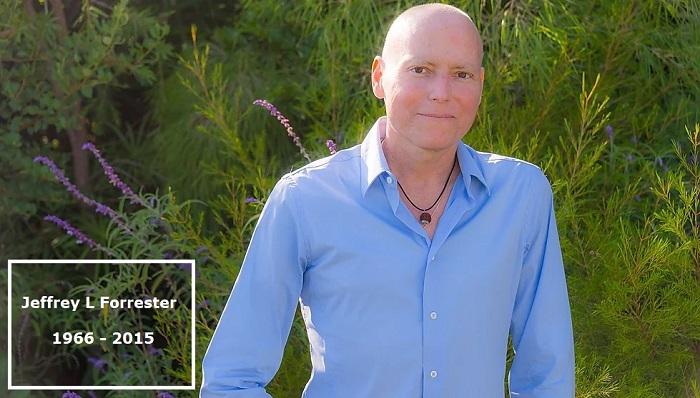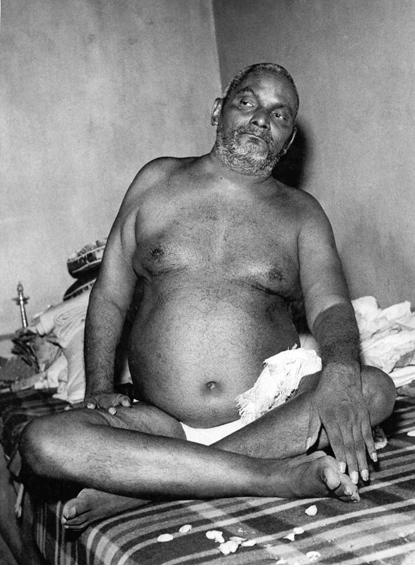

From the writing of Jeff Forrester
“Who is that? What the hell is that, man?”
In the summer of 1980, I was fourteen. I had hair down to my shoulders, sun-bleached blond. My arms and legs were so freckled they’d nearly turned my Irish-white skin brown.
I spent my days, every day, on a wide swath of sand – Zuma Beach, in front of lifeguard Tower 8 or 11, soaked in a mindless love of the ocean, with no impulse to be anywhere else.
My universe was cleaved by an iron partition into two, and only two, categories of being:
Those who surf.
Those who do not surf.
I didn’t understand people who lived away from the sea. And I felt pity for them. They had never pulled into a backside overhead tube. They’d never been scared to the bone in freezing water with just a few friends out at dawn, scratching over pumping winter swells, with twenty feet of spray blowing like rain on your head from howling offshore winds.
Honestly, I didn’t know why other people bothered to live. Surf and skate culture to me was a religion – something impenetrable and perfect. Or so I thought.
In late August of that year, a chain of strange events — my introduction to late Coltrane, the theft of my most precious books on 60s politics, a library trip that ended with me spontaneously piling every book on meditation they had into my backpack — led me to take a bus ride to the Santa Monica Pier. Then walk to the old mall, and finally into a hole-in-the-wall boutique, owned by a South Indian shopkeeper named Sammy Melwani.
It seemed like I was the only person ever in there when I visited. We were always alone, talking, and for hardly a reason at all. I was simply drawn to the vibe of his shop. I liked to breathe in the frankincense and sandalwood, turn his brass multi-armed statues in my hands, and listen, like a hypnotized reptile, to his scratchy cassette recordings of Bismillah Khan.
My life has always been characterized by sudden, categorical decisions. Or patterns that instantly became unviable, opening to something else. And on one afternoon, apropos of nothing, I told Sammy I’d just come to one such decision: “I’m moving to India,” I said.
These days, India seems almost close to California – a phone call away, a plane ride back and forth. But back then, no one I knew could honestly say what India actually was – other than a faraway, misty land of camels and starving people. I might as well have said: “I’ve chosen to live on the moon.”
And Sammy took it exactly that way. He fell back in his armchair and guffawed. “Eeeeeeeeeempossible, mun!!” he said. “Calcutta will eat you! But. But! When you grow. When you become a man. Someday you can do…”
I slouched a bit, and then dropped my backpack on his lap. “No man,” I said. “Look here. I stole all these library books. Check it out.” Then I pulled out one book after another, and piled them on top of his knees. “Meditation. I tried it. It didn’t work. I need a teacher. I’m moving to India.”
Sammy sat and surveyed the hodgepodge of battered paperbacks. Then he held out both his hands, as if inviting me in somewhere. “Oh hoh…” he said. “Now why that’s why. I take it back. What I said. But no… right down this road. Not India! A place for you. Ashram. Look – you go to the ashram and you find the guru and you meditate and then! Then you can fly off to Mother India!” He smacked the glass table and his tin incense bowl bounced up, spilling rice on our feet. Then he plucked out a business card and pencil, scribbled an address on the back, and offered it up, like a handful of rubies.
I took the bus back into Santa Monica the next day. I tracked down a small, white building, as he said, right down the road from his shop. It seemed to have living quarters upstairs, there were tables for meals, and closed off white wooden doors towards the back. An unusual incense blend wafted through the air.
At the front desk, a lady in her early twenties, draped in a white cotton sari with a rhinestone bindi in the center of her forehead, asked me what I’d come for.
I said: “Sammy sent me. Meditation?” She looked me up and down, but seemed to feel it was OK. She led me to the back room and the white doors. When I stepped inside behind her, the thickness of force in that space nearly knocked me backward on the floor.
I knew right then, without a shadow of a doubt, that this – this whatever it was – would rule my life from that second forward.
I sat on the plush carpet with a frayed booklet of Indian words in front of my feet. Others came in – normal-looking people. I thought they were all going to be freaks, like the lady at the counter.
We sang for an hour or so – a lyrical stream of chants. My eyes lingered on the towering and utterly bizarre photos. One practically leapt off the wall: a giant, fearsome, nearly naked, cauldron-bellied, bald man who looked like he was about to kick someone’s ass. Mine probably! Just for being there!

And then another one, showing a wiry, more jovial, bearded man in burnt orange robes. They’d placed him on an ornate chair in the center of the room as if they thought this photo was alive. Jesus! What fucking weirdos!
When the chanting stopped, a thin and pallid man dressed in orange robes like the bearded man in the photo gave some kind of a sermon. And as far as I could tell, he wasn’t speaking English.
I couldn’t grasp a single word he said, and I had a big vocabulary for my age. Gibberish! I tried to stop myself from laughing. But I couldn’t. I bit my tongue so hard it bled. But my shoulders kept bouncing up and down. Everyone could see, but I didn’t care. Oh god. I had to bring my friends back here. This place was better than a mental institution. What a riot!
The priest-man bowed; we bowed. And then we all got up. I left the meditation room first, and fast. I walked up to a pretend Indian lady behind a short glass countertop, pointed to a wallet-sized photograph of the bearded man, and said: “I want that one.”
She gave me one of those looks of total non-confidence, but said: “OK. Four ninety-five.” I fished out a five dollar bill from my jeans; she held out the photograph. And then I made my first mistake in a lifetime of grave and unredeemable holy errors. I said:
“It’s not for me.”
She paused, and took that in. But then pushed the photo forward on the glass. Then she pulled her sari a little closer around her. “Well… you’ve picked a nice one”, she said.
I held out my palm to take the change. “It’s a gift”, I said.
She plopped a nickel into my hand, looked me dead in the eye, and said:
“No it’s not.”
It’s a well known fact that I have almost no control over my face when lying. In a tenth of a second, my entire head had turned blood red. I tried to think of something clever. Anything! But zero is what came out. So I jammed the photo into my back pocket, and I ran.
On the bus back to Malibu, I stared at my photo of the bearded man. And I made plans. I’d go back there with my friends. We’d smoke some blond hash, and go in there, and do the singing, and the bowing, and laugh ourselves to death at those insane fake orange people. The following week, that’s exactly what we did. And the next week, we did it again.
Still, all the way back to Zuma Beach on that bus ride, one hour plus, slow as hell, the photo stared back at me. I couldn’t take my eyes off it. And I could tell, I knew, he was laughing: at me. Laughing at the whole damn thing. And I knew why. He was just that kind of a guy. He looked alive, all right, right in the palm of my hand, staring right through me for an hour. That is why they put him on the chair. I didn’t know his name. I didn’t even care. But he – was for me. Definite. Strong eyes, and I knew strong eyes. They stared me down. Right to the root.
From that day on, I brought him with me everywhere. I put him on my bookshelf. I took him to the beach. I took him to school. I looked at him, and tried to figure him out, constantly. He always had the upper hand. I even tried reading his book a year later, but couldn’t make heads or tails of it. Gibberish! My friends would ask me, “Who is that? What the hell is that, man?” And I always said one thing:
“That, you dumb motherfuckers, is Swami Muktananda.”
